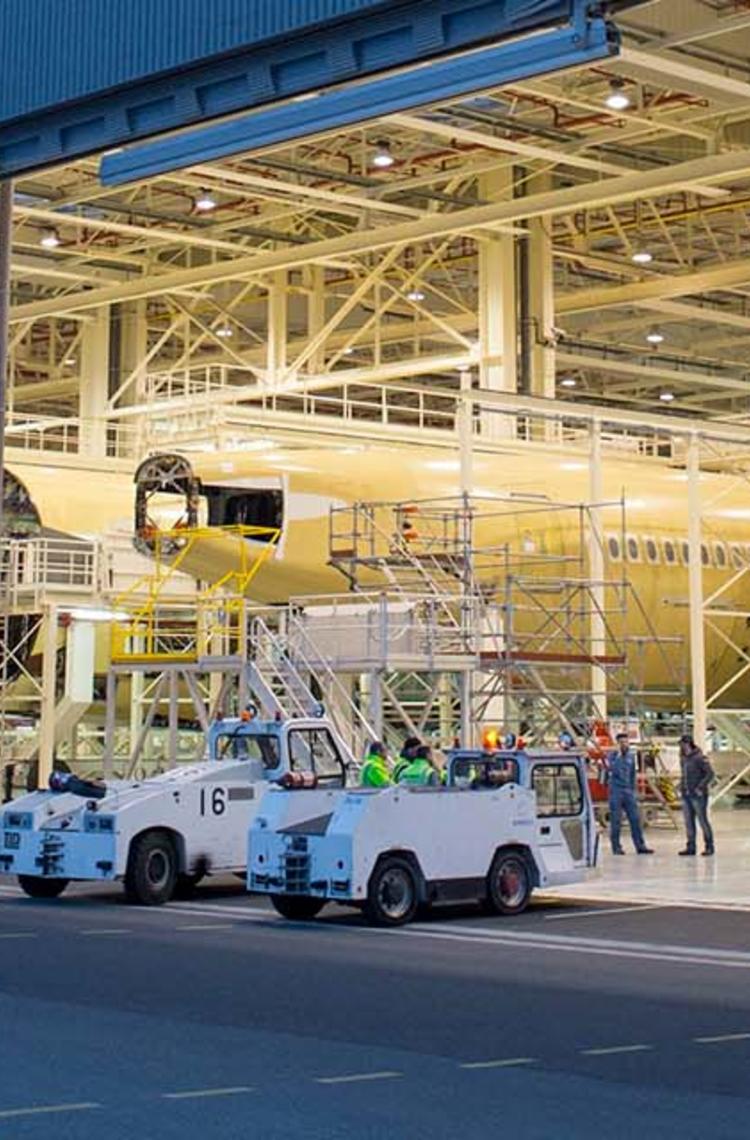Our ambition
Scope 1 and 2 emissions
Airbus is committed to leading the aviation industry’s decarbonisation journey by streamlining our operations and continuously improving our products. That journey starts on the ground: at our sites and through our logistics.
Greenhouse gas emissions are categorised in three ways, known as scopes. Scope 1 emissions are from sources that an organisation owns or controls directly – for example from fuel used in manufacturing processes or by company vehicles. Scope 2 emissions are those that a company produces indirectly, often through the purchase and use of electricity or heating.
What are Airbus’ scope 1 and 2 emissions?
In 2023, scopes 1 and 2 made up 0.4% of Airbus’ total CO2 emissions. That may seem relatively small, but these emissions are still important to address, especially given our high level of control over abating them. To move toward a low-carbon future, all industrial sector companies must reduce their scope 1 and 2 emissions.
The remainder of Airbus emissions are scope 3. Find out what we’re doing to reduce these emissions.
What are Airbus’ targets for reducing scope 1 and 2 emissions?
By 2030, Airbus has committed to reducing scope 1 and scope 2 emissions by 63%, as compared to 2015 levels, and to neutralise residual emissions.
These targets are in line with the Paris Agreement to limit the planet's temperature rise to 1.5°C. They have been validated by the Science-Based Targets Initiative (SBTi). SBTi is an independent organisation that is widely acknowledged as a leading CO2 target-setting and assessment body.
What is Airbus doing to reduce scope 1 and 2 emissions?
We are implementing a wide range of measures to reduce the amount of energy we use, including switching to renewable or low-carbon energy sources wherever possible. In 2023, we reported 645 kilotons CO2e emitted from our operations, meaning our efforts led to a 42% reduction in our scope 1 and 2 emissions compared to 2015 levels.
Manufacturing is an energy-intensive process. The first step to reducing our carbon footprint is minimising the amount of energy we use and making our operations as energy efficient as possible.
Airbus has set a target to reduce energy consumption by 20% by 2030, compared to 2015 levels. To do this, we are implementing a portfolio of projects to upgrade our facilities, improve the energy efficiency of our buildings and operations, and capture better data through enhanced metering and monitoring.
Additionally, we are increasing the share of renewable and low-carbon energy that is supplied to our sites. We have an ambition to secure at least a 90% direct supply of renewable or low-carbon electricity to all Airbus sites in Europe before 2030, and we have made good progress through on-site renewable energy installations and implementing power purchase agreements (PPA). For example, in 2023 the Company signed new PPAs in Spain, with all agreements covering 40% of our purchased electricity in the country.
Beyond the energy we use at our sites, there are a wide range of other measures we are introducing to help further reduce CO2 emissions. This includes a transition to low-emission transportation, such as improving the efficiency of our maritime and road transport and increasing the use of sustainable aviation fuel (SAF) in our operations. We have used SAF in our Beluga fleet since 2019, and in our flight test activities since 2022.










